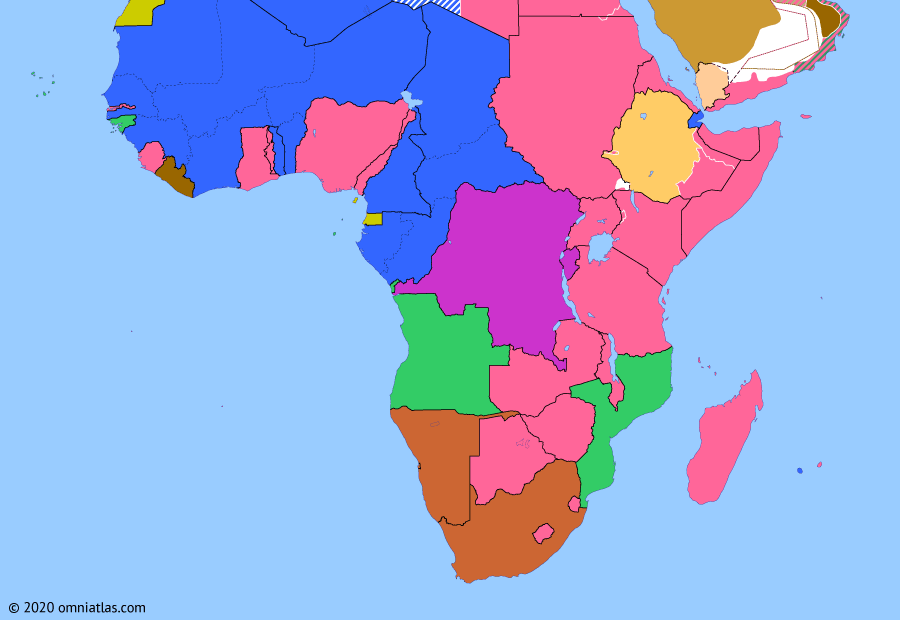Sub-Saharan Africa 1945: End of World War II
15 August 1945
15 Aug 1945
End of World War II
24 Jun 1940 World War II and the Fall of France
19 Aug 1940 Italian East African Offensives
25 Sep 1940 Debacle at Dakar
8 Nov 1940 Battle of Gabon
1 Mar 1941 East African Campaign
6 Apr 1941 Liquidation of Italian East Africa
7 May 1942 Operation Ironclad
29 Sep 1942 Occupation of Madagascar
23 Nov 1942 Three French Empires
3 Jun 1943 French Committee of National Liberation
25 Aug 1944 From Africa to Paris
15 Aug 1945 End of World War II
The surrender of Germany and Japan in May and August 1945 brought an end to World War II. Africa ended the war almost exactly as it started it, under the colonial rule of the European powers. However, the full restoration of Ethiopian independence (in late 1944) was a sign of changing international attitudes and colonialism's days would prove to be numbered.
